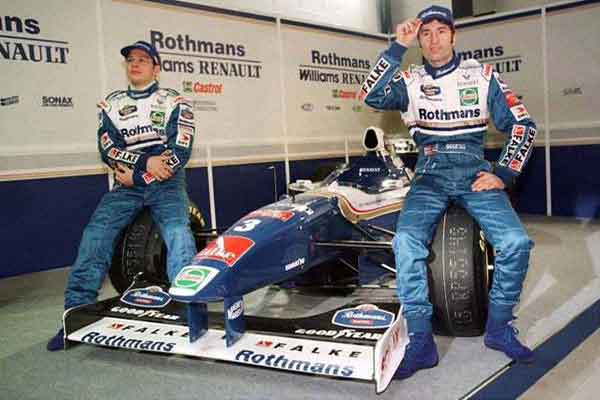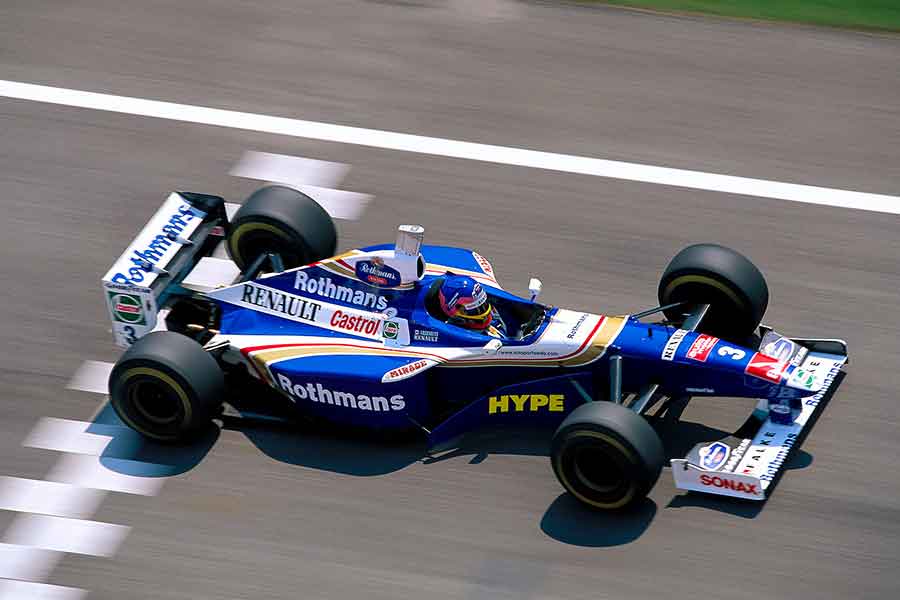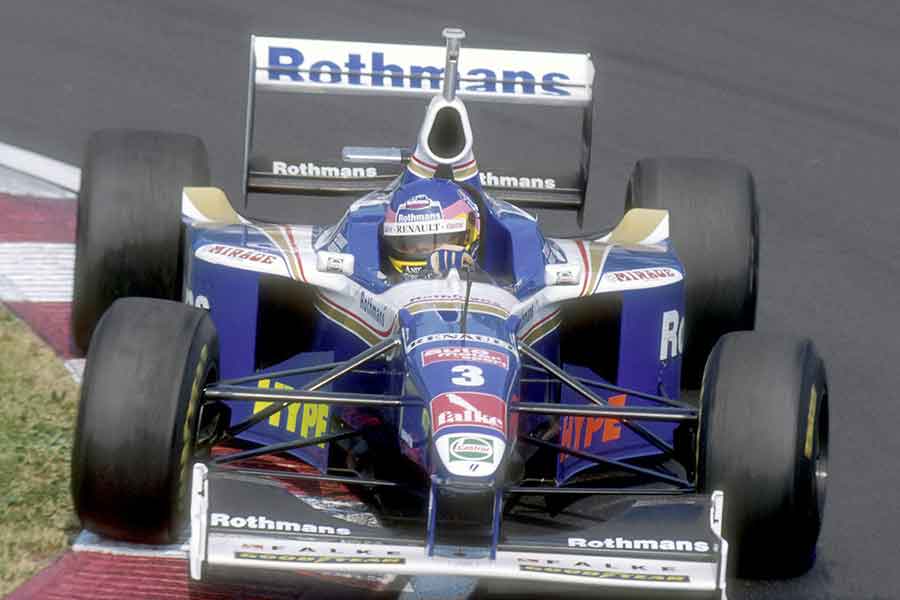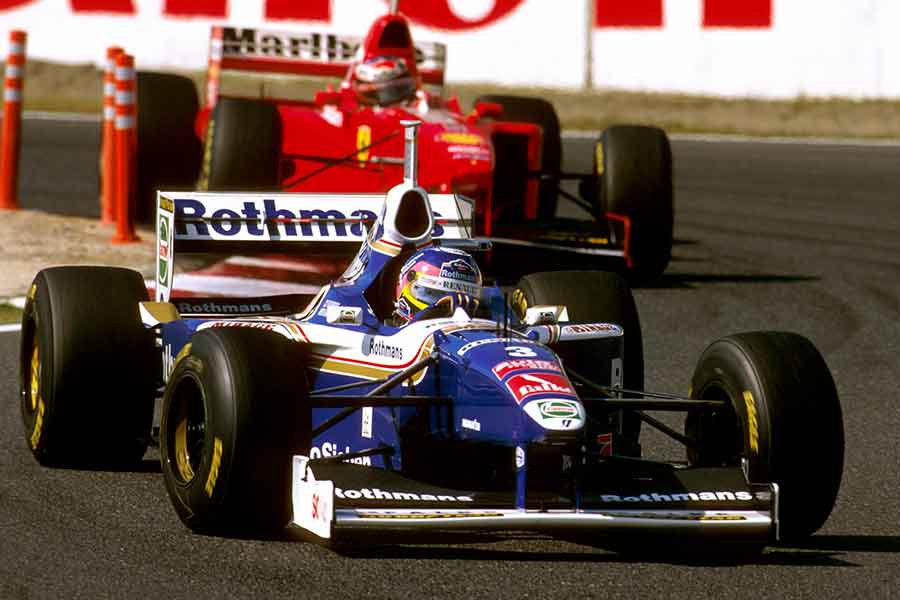Williams FW19 - The Last Formula 1 Title Winner From Grove
The Williams FW19 Renault was the car which in 1997 won the last Formula One World Championship title for the Grove based team.
During the 1980s and 1990s, Williams was one of the dominant teams in Formula One but the period of success ended in 1997. That year team won its last trophies so far, winning both Drivers’ and Constructors’ Championship titles with the Williams FW19. That’s why this car has a special place in the history of the Grove-based team.
Williams FW19 was improved version of its predecessor
The Williams FW19 wasn’t a revolutionary car. It was built around the FW18 which was very successful and also relatively easily won both trophies a year earlier. Patrick Head as Technical Director and Adrian Newey as Chief Designer had a good starting point and their job of developing the new car wasn’t too hard. They had to meet and incorporate regulation changes and put the new Renault engine, which was much smaller than the previous one, into it.

Williams FW19 Renault cutaway
Chassis was slightly improved, the new engine was much smaller while the new gearbox was pretty similar to the previous one but was more compact. That gave the whole car a much lower center of gravity but also allowed many aerodynamics changes at the back of the car.
The Williams FW19 was a well-packed car but wasn’t as dominant as its predecessor. Ferrari and Michael Schumacher were strong opponents and championship battle was decided controversially in the final race of the season. Jacques Villeneuve won his only F1 title, while Heinz-Harald Frentzen, who arrived as a replacement for reigning champion Damon Hill, did well and played an important role in the team’s assault to the title.
Start of the season was marked by wins and retirements
Beginning of 1997 campaign was somewhat strange. In the season-opening race in Australia, Villeneuve retired and Frentzen finished out of points. However, the Canadian driver bounced back in the following two races- He won in Brazil and Argentina but his teammate again failed to score a single point.

Villeneuve and Frentzen with Williams FW19 Renault
Interestingly, the German racer won the race at Imola but Villeneuve retired. The Monaco Grand Prix was one of the worst moments of the season after both drivers retired. Luckily for the team, Jacques triumphed at Spanish Grand Prix but Frentzen again was out of points.
At that point of the season, Villeneuve topped the standings, having just three points more than Michael Schumacher. In the Constructors’ Championship, Williams was 2nd, trailing Ferrari by one point.
Ups and downs in the mid-season
Canadian Grand Prix was the 7th round of the season but Villeneuve retired from his home race. In France, Frentzen was 2nd and his teammate 4th. German driver then enrolled three consecutive retirements. However, his teammate did much better and won the races at Silverstone and Hungaroring, but retired in the German Grand Prix at Hockenheim.

Jacques Villeneuve, Williams FW19 Renault
With six races remaining, Villeneuve was 2nd in the championship, three points behind Schumacher. In the Constructors’ Championship, Williams still was behind Ferrari, with a margin of only two points what indicated that finish of the season will quite thrilling.
Fine form in the last third of the year
When it was most important, Williams was able to find a proper rhythm. In both Belgian and Italian Grand Prix, Frentzen finished 3rd and Villeneuve 5th. Jacques then scored two consecutive wins, in Austria and at Nurburgring, while his teammate again was 3rd. With two races to go, Villeneuve was the championship leader, having 9 points lead to Schumacher while Williams was 26 points clear of Ferrari in the Constructors’ Championship.

Williams FW19 Renault was the last championship winning car constructed by the Grove-based team
The situation overturned into Schumacher’s favor after Japanese Grand Prix. German driver won the race while Villeneuve was disqualified and lost the lead in the standings. Before the final race of the season at Jerez Circuit, Michael was just a point ahead of Villeneuve. On the other side, Williams already secured the title in the Constructors’ championship thanks to Frentzen’s 2nd place in Japan.
Villeneuve triumphs after controversy
The season-ending race was controversial. The FIA promised to issue penalties to anyone who tried to influence the outcome of the championship. Schumacher already had experience of winning the title in a controversial way and he tried to do the same again. However, the Ferrari driver failed in his attempt to pull Villeneuve out of the race. His Ferrari hit the left radiator pod of Villeneuve’s Williams who was able to continue the race but Schumacher was forced to retire.

Villeneuve and Schumacher at Suzuka, 1997
Jacques finished 3rd in the race and was crowned as a new Formula One World champion, finishing the season three points ahead of Schumacher. It turned out that Williams will have to wait very long time on a new trophy.
What do the numbers say?
The Williams FW19 won 8 out of 17 races in 1997 (Villeneuve 7, Frentzen 1), scored a total of 14 podiums, 11 pole positions (Villeneuve 10), and 9 fastest laps (Frentzen 6, Villeneuve 3), amassing a total of 123 points.
Williams FW19 technical specifications
| Chassis | Carbon Aramid epoxy honeycomb composite structure |
| Car length | 4.150 mm |
| Wheelbase | 2.890 mm |
| Track (front & rear) | 1.670 mm / 1.600 mm |
| Front suspension | Inboard torsion bar, double wishbone operated by push board bellcrank |
| Rear suspension | Inboard coil spring, double wishbone operated by push board bellcrank |
| Engine | Renault RS9, V10 71°, 3.000cc, mid, longitudinally mounted, naturally aspirated |
| Power | 755 bhp / 563 kW at 14.600 rpm |
| Gearbox | 6-speed Williams transverse semi-automatic |
| Brakes | Carbone Industrie discs and pads operated by AP calipers |
| Weight | 605 kg including driver |
| Tires | Goodyear Eagle radials |
| Fuel | Elf |
Video – Williams FW19, 1997 Canadian Grand Prix
Photo: wheelsage.org, silodrome.com, twitter.com, pinterest.com, flickr.com,



